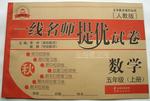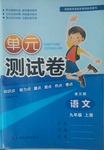题目内容
Once upon a time, a man punished his 5-year-old daughter for using up the family's only roll of expensive gold wrapping paper. Money was tight, and he became even more____when on Christmas Eve, he saw____ the child had pasted the gold paper so as to decorate a shoebox to put under the Christmas tree.
______, the next morning the little girl, filled with excitement, brought the gift box to her ____ and said, "This is for you, Daddy!" As he opened the box, the father was _____ by his earlier overreaction.____when he opened it, he found it was____ and again his anger flared. "Don't you know, young lady,” he said harshly, “____ you give someone a ____ there's supposed to be something inside the package!"The little girl looked____ at him with tears rolling from her eyes and said: "Daddy, it's not empty. I blew kisses into it until it was all full." The father was ____. He fell on his knees and put his arms around his precious little girl. He begged her to____ him for his unnecessary anger.
An accident took the____ of the child only a short time later. ____is told that the father kept that little gold box by his bed for all the years of his life. ____ he was discouraged or faced difficult problems he would open the box, take ____ an imaginary kiss, and remember the love of this beautiful child ____ had put it there.
In a very real sense, each of us as human beings have been given an____golden box filled ____ unconditional love and kisses from our children, family, friends and God. There is no more____possession anyone could hold.
______, the next morning the little girl, filled with excitement, brought the gift box to her ____ and said, "This is for you, Daddy!" As he opened the box, the father was _____ by his earlier overreaction.____when he opened it, he found it was____ and again his anger flared. "Don't you know, young lady,” he said harshly, “____ you give someone a ____ there's supposed to be something inside the package!"The little girl looked____ at him with tears rolling from her eyes and said: "Daddy, it's not empty. I blew kisses into it until it was all full." The father was ____. He fell on his knees and put his arms around his precious little girl. He begged her to____ him for his unnecessary anger.
An accident took the____ of the child only a short time later. ____is told that the father kept that little gold box by his bed for all the years of his life. ____ he was discouraged or faced difficult problems he would open the box, take ____ an imaginary kiss, and remember the love of this beautiful child ____ had put it there.
In a very real sense, each of us as human beings have been given an____golden box filled ____ unconditional love and kisses from our children, family, friends and God. There is no more____possession anyone could hold.
| 小题1: |
|
| 小题2: |
|
| 小题3: |
|
| 小题4: |
|
| 小题5: |
|
| 小题6: |
|
| 小题7: |
|
| 小题8: |
|
| 小题9: |
|
| 小题10: |
|
| 小题11: |
|
| 小题12: |
|
| 小题13: |
|
| 小题14: |
|
| 小题15: |
|
| 小题16: |
|
| 小题17: |
|
| 小题18: |
|
| 小题19: |
|
| 小题20: |
|
小题1:C
小题2:A
小题3:D
小题4:D
小题5:B
小题6:B
小题7:D
小题8:D
小题9:D
小题10:A
小题11:C
小题12:D
小题13:C
小题14:A
小题15:A
小题16:A
小题17:B
小题18:C
小题19:A
小题20:A
试题分析:本文通过讲一个小女孩送给父亲装满吻的盒子,说明这样一个道理。我们每个人都被赠与过一个无形的金色礼盒,那里面装满了来自子女,家人,朋友及上帝无条件的爱与吻。人们所能拥有的最珍贵的礼物莫过于此了。
小题1:考查形容词。根据he saw____ the child had pasted the gold paper so as to decorate a shoebox to put under the Christmas tree.可知这里想说父亲变得更加心烦意乱,他看到了圣诞树下的一个鞋盒,女儿原来把金纸贴在了这个鞋盒上做装饰。Happy高兴;sad悲伤;upset心烦意乱;confident有信心的,故选C。
小题2:考查宾语从句。这里含有一个宾语从句,引导词在从句中不作任何成分,也没有实际意义,故用that,故选A。
小题3:考查副词。根据the next morning the little girl, filled with excitement, brought the gift box to her ____ and said, "This is for you, Daddy!"可知这里表示转折关系,故用Nevertheless,故选D。
小题4:考查名词。根据"This is for you, Daddy!"可知这里想说,圣诞日的早上,小女孩满是兴奋得把这个圣诞礼盒呈到了父亲面前,说到:“爸爸,这个送给你!”。故选D。
小题5:考查形容词。根据"This is for you, Daddy!" As he opened the box,可知是自己之前批评了女儿,而女儿却送自己礼物,所以他为自己之前的行为感到很尴尬。satisfied 满意的;embarrassed尴尬的; hopeful有希望的;surprised惊奇的,故选B。
小题6:考查连词。根据he found it was____ and again his anger flared.可知这里表示转折关系,故选B。
小题7:考查形容词。根据and again his anger flared.可知这里想说,但是当他打开盒子后,发现里面是空的,他的怒火再次爆发了。Full满的;pretty漂亮的;humorous幽默的;empty空的,故选D。
小题8:考查连词。根据上下文,这句话表达的意思是:当你送人礼物时,盒子里面应该是有东西的。If如果;whether是否;how 怎样;when当……时候。故选D。
小题9:考查名词。根据there's supposed to be something inside the package!可知这里想说当你送人礼物时,盒子里面应该是有东西的。Surprise惊奇;shock打击;challenge挑战;present礼物。故选D。
小题10:考查副词。根据The little girl looked____ at him with tears rolling from her eyes and said: "Daddy, it's not empty. I blew kisses into it until it was all full."可知这里想说小女孩抬头看着气头上的父亲,泪水在她的眼眶中打转。故选A。
小题11:考查动词。根据He fell on his knees and put his arms around his precious little girl.可知这里想说男人顿时被击垮了。Attacked攻击;trapped困住;crushed击垮;left离开,故选C。
小题12:考查动词。根据He fell on his knees and put his arms around his precious little girl.可知这里想说他跪下双膝,双手环抱着自己珍爱的小女孩,祈求她的原谅。Defend防守;rebuild重建;follow跟随;forgive原谅。故选D。
小题13:考查名词。根据____is told that the father kept that little gold box by his bed for all the years of his life. ____ he was discouraged or faced difficult problems he would open the box, take ____ an imaginary kiss, and remember the love of this beautiful child ____ had put it there.可知小女孩在事故中失去了生命。故选C。
小题14:考查形式主语。That引导的主语从句放在句末,所以这里需要一个形式主语,故只能用it。故选A。
小题15:考查连词。根据he was discouraged or faced difficult problems he would open the box, take ____ an imaginary kiss, and remember the love of this beautiful child ____ had put it there.可知这里想说无论何时他感到气馁或者遇到难办的事情,他就会打开礼盒。故选A。
小题16:考查短语。根据an imaginary kiss,可知这里想说取出一个假想的吻。Take out是固定用法,意思是取出。故选A。
小题17:考查定语从句。这里含有一个定语从句,且关系词在从句中作主语,指人。故选B。
小题18:考查形容词。根据golden box filled ____ unconditional love and kisses from our children, family, friends and God.可知这里想说我们每个人都被赠与过一个无形的金色礼盒,那里面装满了来自子女,家人,朋友及上帝无条件的爱与吻。Personal个人的;ordinary普通的;invisible看不见的;visible看得见的,故选C。
小题19:考查短语。句意:那里面装满了来自子女,家人,朋友及上帝无条件的爱与吻。Be filled with是固定用法,意思是充满,故选A。
小题20:考查形容词。根据There is no more____possession anyone could hold.可知这里想说人们所能拥有的最珍贵的礼物莫过于此了。Precious珍贵的;ordinary普通的;normal正常的;cheap便宜的,故选A。

练习册系列答案
 一线名师提优试卷系列答案
一线名师提优试卷系列答案 阳光试卷单元测试卷系列答案
阳光试卷单元测试卷系列答案
相关题目